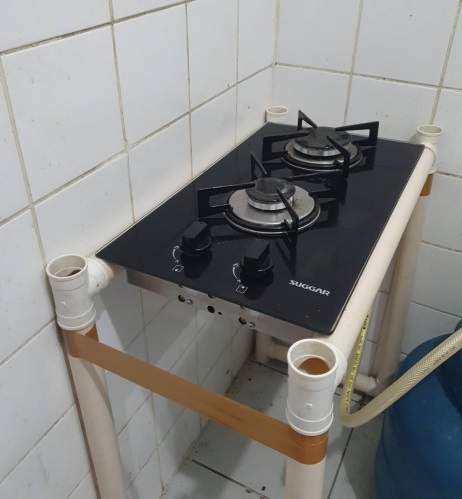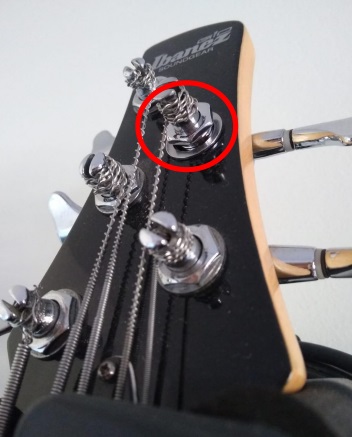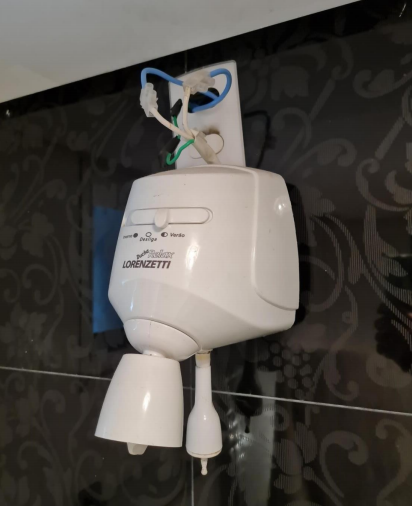One of the criteria for storing or discarding objects is their proper functioning (or not). Fixing things – whether by hiring a professional or by hand – can be a cost-effective and creative way to extend the life of objects we like. This workshop will discuss how the practice of repairs can be valued and applied in our daily lives.
Facilitators
Fred Paulino is an artist, designer, researcher and curator. He is the catalyst of Gambiologia project (gambiologia.net), which since 2008 investigates art and technology in dialogue with education and popular culture, especially around the themes of improvisation and reuse. Fred is also the coordinator of “Tales of Care and Repair” in Brazil.
Wellington Cançado is an architect and professor at Architecture and Design School at UFMG in Belo Horizonte, Brazil. Co-founder of Cosmópolis group and coordinator of “Urbe Urge: Responses to Climate Emergency” program, his research is dedicated to urban metamorphosis and the cosmopolitics of the Anthropocene. Author of the books “WalkingAtlas”, “Urbe Urge” and “Excavating the Future”, he is also editor of PISEAGRAMA magazine.
Registration Details
This workshop is available for EA (UFMG) students only
Agenda
07:00: Welcome and Orientation by Gambiologia
07:10: Tales of Care and Repair: Project Introduction and Website Presentation
07:20: Workshop Goals
07:25: Fixing: Definitions
07:40: Debate
08:00: Repair: In the World and in Brazil
09:50: Closing
What Happened
The second Tales of Care & Repair workshop in Brazil took place in partnership with the School of Architecture at UFMG (Federal University of Minas Gerais), being held with Design students. The online workshop via Microsoft Teams platform was given by Fred Paulino (coordinator of Tales of Care & Repair in Brazil) and Wellington ‘Low’ Cançado (project collaborator and member of the Conserta & Conta study group, resulting from the project’s actions in Brazil). The workshop was held as part of the “Design and Architecture” discipline, which at the time was working on the idea of personal inventories. The workshop was part of the semester workload of the 23 participating students.
The workshop was divided into two sessions of two hours each, on the 9th and 12th of August 2021. As a way of raising awareness of the activity, the article “Maintenance and Care” by Shannon Mattern, published on placesjournal.org in November of 2018, was translated into Portuguese and previously sent to students.
At the first meeting, on August 9, the proposal for the Tales of Care & Repair project was presented, with a focus on actions to be carried out in Brazil. A slide presentation prepared on the theme of the project was shown and discussed, with a focus on the idea of Reparation, which would be the main theme of the discussions in the Brazilian context. The presentation script consisted of:
– General presentation of Tales of Care & Repair, with project objectives and actions to be carried out in Brazil, UK and India;
– Brief presentation of partner organizations in carrying out the project;
– Initial discussion about impressions in relation to the submitted text;
– Etymology of the words “fix” and “repair”;
– Division of discussions into four lines of analysis: art, society, economy and beyond;
– Repairs in art: Maintenance Art manifesto, Glitch, Hack, Reuse, Accumulation, Daily life observation, Vernacular art
– Repairs in society: Gambiarra, Handyman, Collapse of the local/common, Traditions, handicrafts and memory, Collectives and repair activists;
– Repairs in economy: urban infrastructure, regulation in Brazil, recycling x reuse x upcycling, 9 R’s;
– Repairs beyond: climate change, environmental disasters, reparation, repair projects in Brazil.
During the presentation, there were several moments of exchange and discussions between facilitators and students, in which points were discussed such as: marginalized areas in the urban space; working people care; Kintsugi technique, along with the frustration of broken things and the patience in repairing; the issue of garbage in public space; the idea of valuing error, based on the example of banknotes and coins printed with errors; the work of ceramist Rodrigo Torres from Rio de Janeiro and his series “Objects in transit”; “Handywomen” and the work of the “Concreto Rosa” (“Pink concrete”) collective of engineers and builders from Rio de Janeiro; it was pointed out that “the engine of design is no longer innovation, but maintenance”; the idea of memory in relation to elderly people was discussed and how the transmission of knowledge between generations can be related to a certain historical period of limitation of resources; the notion of repair as empowerment.
At the end of the first meeting, an exercise for collecting repair stories was proposed to the students, in which each participant should bring three examples of daily repairs to the next meeting – one DIY, one professional and one that failed.
The second meeting, on 16/08, was dedicated to the presentation by students of the collected images. The results of the exercise were quite satisfactory, with a total of approximately 70 repair examples brought in by the students. Unfortunately, at this time the upload system of the Tales of Care & Repair website was not yet available, so only a small part of the collected stories were subsequently uploaded by the students on the project’s website.
Some of the discussions that surfaced on the second day of the workshop were: counterpoint between universal repairs and specialized repairs; trial and error; dependence on professionals and the father figure to carry out repairs; service-oriented economy; durability of improvised repairs; repairs and adaptations aimed at accessibility (this topic was brought by a quadriplegic student); the repairing of personal relationships.







